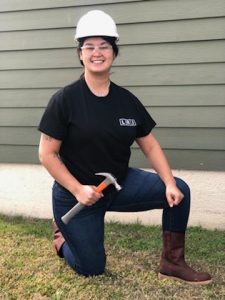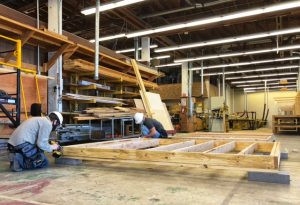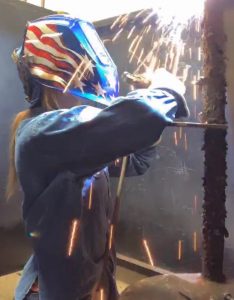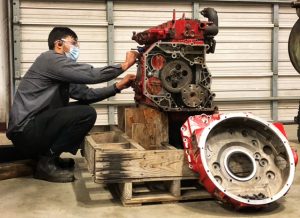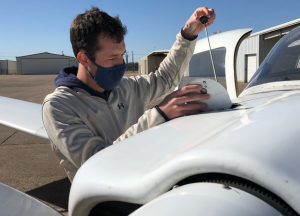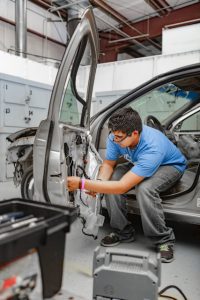(WACO, Texas) -Vanessa Loredo, of Waco, is working toward an Associate of Applied Science degree in Building Construction Technology at Texas State Technical College. She is scheduled to graduate in December.
What inspired you to study Building Construction Technology at TSTC?
My mother surprised us with a pumpkin for Halloween when I was seven years old. The next day, we walked to the store to grab some milk for my little brother. When we were walking back, we could see something in the middle of the road, but it was too far to see exactly what it was. We continued walking to only find our beloved pumpkin smashed in the middle of the road. Older kids from the neighborhood were going around smashing pumpkins.
My mother hurried us in the house to calm us, just to walk in the door and see the electricity was cut off. My mom quickly lit a few candles and sat with all of us on the living room floor, reassured us everything was going to be okay, and pulled out a few pieces of blank paper. She said we should draw our dream houses just to get our minds onto something else. With tears in my eyes, I began drawing a house with big gates around it so no one could take anything from me. The house I drew had electricity, unlimited food, water, toys, new clothes, and a car for my mom. I joined TSTC’s Building Construction Technology program inspired to give my mother that house.
What is a typical class day like for you?
A typical class day is driving to school and not leaving my truck until my personal protection equipment is in hand. I head into the building through approved entrance doors. I enter the classroom on time and ready to learn.
What have you enjoyed learning so far in the Building Construction Technology program?
I have enjoyed everything about the program. My instructors are excellent mentors and push me to my fullest potential. I enjoy creating with my hands the most.
What challenges have you had during the pandemic as you attend TSTC?
I do not have too many challenges due to the hard work and endurance of my instructors. Without my instructors, the challenges I face would be astronomical.
What are your plans for after graduation, and are you optimistic about the job market?
I plan on purchasing a few pieces of land and breaking ground for new homes. I want to buy a few already built homes and refurbish them, then flip them. I want to build my company from the ground up and provide opportunities for so many people. I am being optimistic, though life has prepared me for anything. So I know with my heart, mind, body and soul that whatever the job market looks like, God will guide my way.
Why should more women consider pursuing the construction industry?
More women should pursue this industry because we as women are natural perfectionists, organizers, and are determined to finish what we start.
The U.S. Bureau of Labor Statistics has projected that there will be a need for more than 517,000 construction managers by 2029 due to new construction, infrastructure for upgrades and replacements, and retrofitting structures to make them more efficient. In Texas, construction managers made an annual mean wage of more than $97,000 as of May 2019, according to the agency.
TSTC offers an Associate of Applied Science degree in Building Construction Technology and a Building Construction – Craftsman certificate at the Harlingen and Waco campuses.
For more information on Texas State Technical College, go to tstc.edu.
